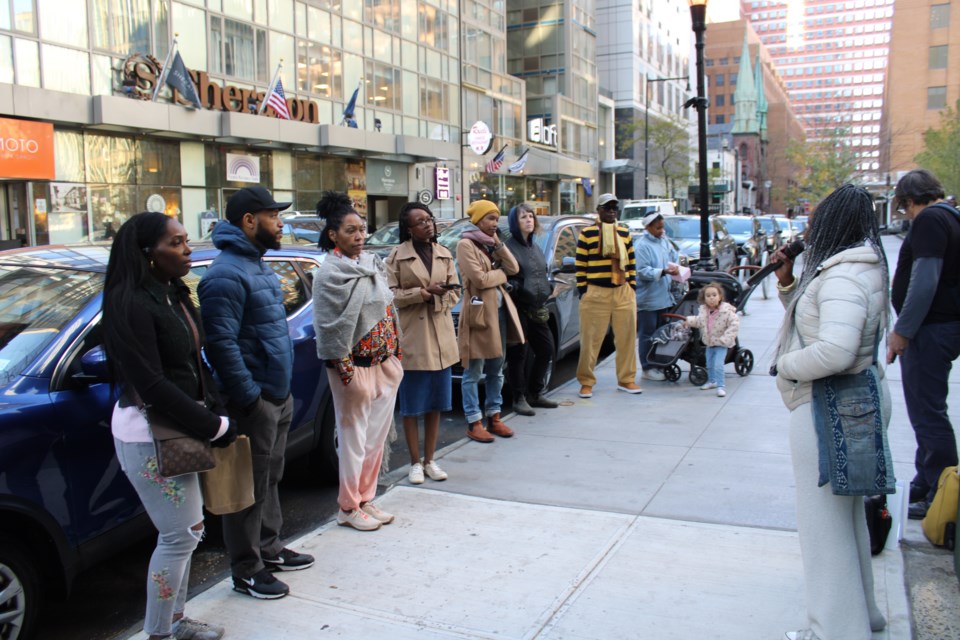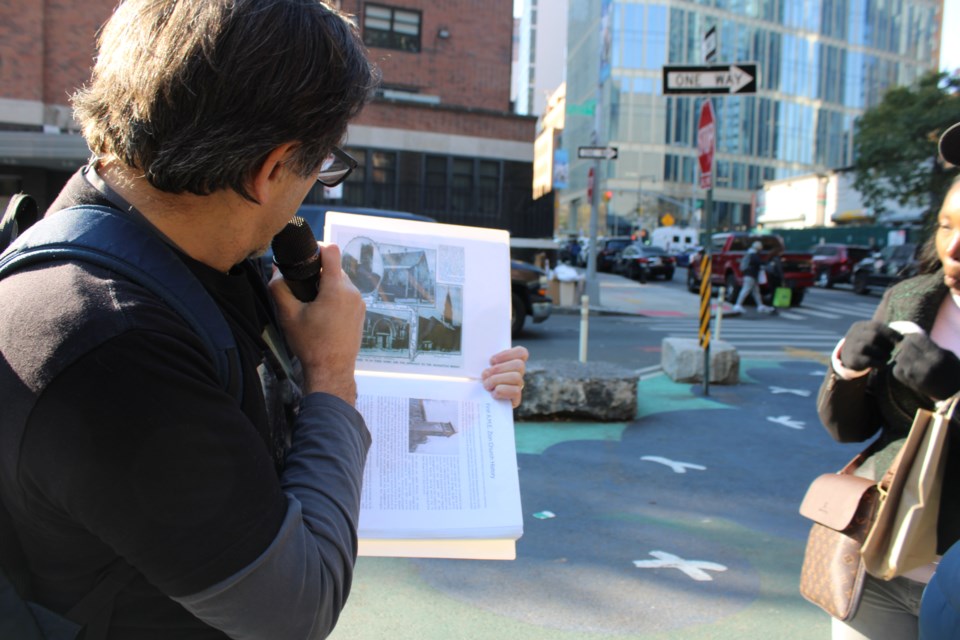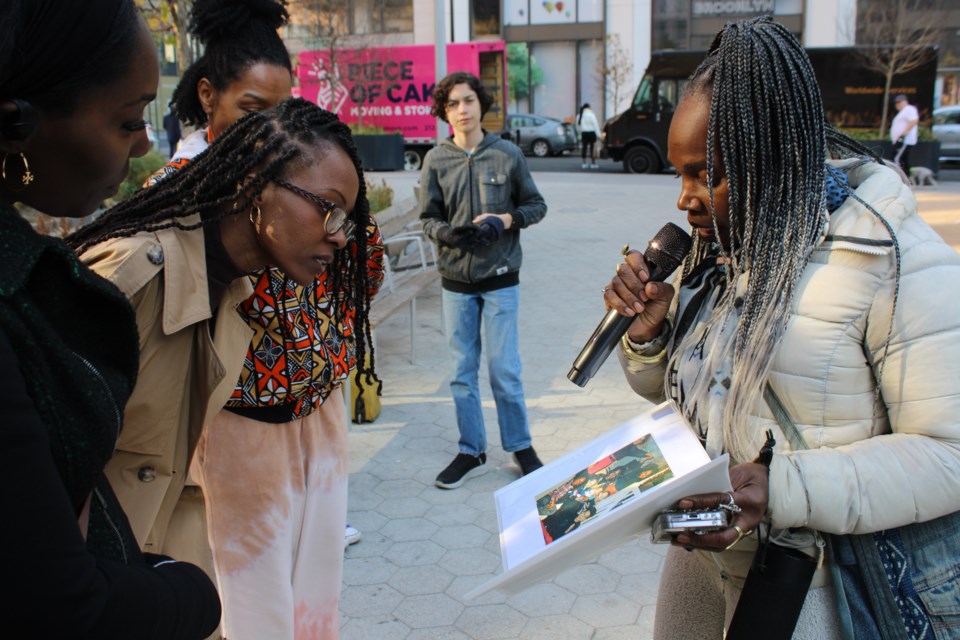A new walking tour of Downtown Brooklyn shares the story of the borough's free Black communities in the 19th century and highlights its little-known role in the fight to abolish slavery.
Mama Joy’s Abolitionist Waking Tour is hosted by Friends of Abolitionist Place, an organization dedicated to preserving the Black history of the downtown MetroTech, an area that has seen major growth in residential and office towers since the 2000s.
The heart of the tour is 227 Duffield St., the former home of Joy Chatel, also known as Mama Joy. Chatel was a beauty parlor owner who inherited the property from her late husband and lived in it while raising and homeschooling her grandchildren.
When Chatel received a notice from the city that her home would be destroyed through eminent domain in 2004, she fought back and made public the home’s prominent role in Black history. It was a stop on the underground railroad and the former home to abolitionists Thomas and Harriet Lee Truesdell, who helped enslaved people reach freedom.
“It's very important to know these stories,” said Shawné Lee, co-founder of Friends of Abolitionist Place and daughter of Chatel. “When you take our walking tour, you'd be surprised at the endless amount of people that are mentioned who you don't have a clue as to who they are, what they did and what they contributed to our community, to the fabric of this nation.”

Lee hosts the tour along with Raul Rothblatt, a public historian who’s done extensive research on 227 Duffield St. While Rothblatt tells the story of Brooklyn’s slaveholding history and the free Black communities that came out of it, Lee shares details of her mother’s fight to save her home and give recognition to its significance.
“Mama Joy has inspired me to discover more about the untold story of Downtown Brooklyn,” said Rothblatt. “I am amazed that there is so much to explore about abolitionist history, even on streets that might seem devoid of historical significance. It fills me with awe for Brooklyn history.”
The tour educates attendees on 19th century figures like Sarah J. Garnett, a free Black educator from Brooklyn who was active in the women's suffrage movement, and Elizabeth Gloucester, a wealthy Black woman who supported the underground railroad and lived in Brooklyn until her death in 1883. The tour also highlights the importance of Black churches like the Bridge Street African Methodist Episcopal Church, which was a stop on the underground railroad.
Temple Ellis, who was visiting Brooklyn from Columbus, Ohio, said she loved the tour.
“I learned a lot about just the foundational work the abolitionists did here in Brooklyn,” said Ellis, who found out about the walking tour on EventBrite. “I would have never thought that it had this sort of historical background.”
227 Duffield St. still stands today as it was saved from demolition several times over the past 20 years. In 2007, Duffield Street was co-named Abolitionist Place to honor its history. 227 Duffield was landmarked by the city in 2021, and an adjacent park was named Abolitionist Place Park.

“It's amazing how that one small house continues to stand through all of the hardships,” said Lee. “Any time I look and stand in front of that house, it's just a testament that it is a home for the people. It represents the people. It represents the power of the people. That small home that's still standing amongst those tall buildings is a reflection of the resilience of the people and of the resilience of my mom who lived and died to save that home.”
Chatel died in 2014, but the home was purchased by the city in 2021 and stabilization work to preserve it was completed in 2023. Last week, the city Economic Development Corporation held two community engagement sessions seeking input on what should be done with the property. Lee hopes to turn the home into a heritage center that can be used for educational and cultural programming.
“We want it to be a place for community engagement, civics engagement, where you can freely express exactly what's going on and what may be a detriment or something positive that's going on within your community,” said Lee. “Community unity is one thing we're really advocating for.”
Friends of Abolitionist Place will resume walking tours in the spring of 2025.



.png;w=120;h=80;mode=crop)
